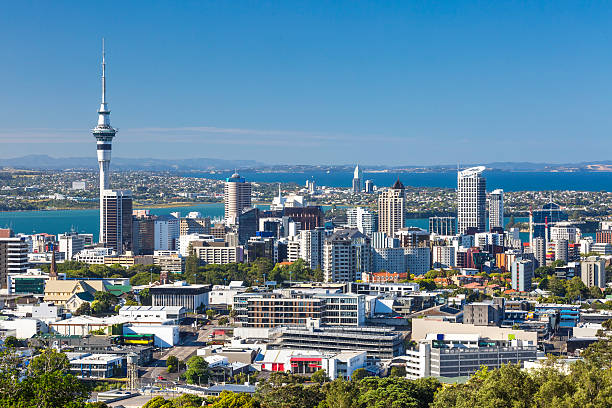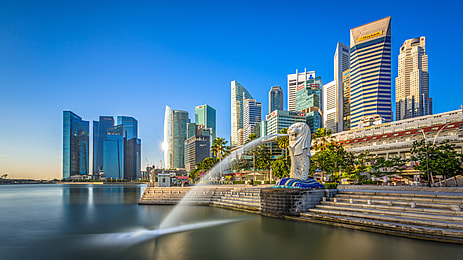Guinea Travel Guide: All you need to know to visit Guinea in 2024
Welcome to Guinea
Welcome to Guinea
Guinea, a stunning nation in West Africa, is renowned for its varied scenery, rich culture, and kind people. Guinea gives visitors a singular and wonderful experience, from the lush woods of the Fouta Djallon to the lovely beaches of the Atlantic. You can maximize your trip to Guinea by using the information and ideas in our comprehensive travel advice.
Document checklist for Guinea
Visa (if applicable)
Valid passport
Return or onward ticket
Yellow fever certificate
Essential Guinea travel information
Currency – Guinea’s official currency is the franc. About 8 603,69 GNF are in $1.
Daily budget for one person – Approximately 725–1060 GNF or USD 85–125 per person daily.
Languages – French is the official language of Guinea. However, the nation is home to speakers of more than 40 languages, including Fula, Mandinka, and Susu.
Socket type – C, F, and K types. The frequency is 50 Hz, and the standard voltage is 220 V.
Time zone – Greenwich Mean Time (GMT).
Top 3 cities/islands to visit – Guéckédou, Nzérékoré, and Conakry.
Top 3 landmarks/monuments – The Conakry Grand Mosque, the Lady of Mali, and the Cultural Center.
Visa information for Guinea
Visitors can stay in Guinea for three months with a single entry visa. This implies that visitors are permitted a single entry and a stay of up to 90 days.
Typical costs and budget for Guinea
Daily spending – 725-1060 GNF or USD 85-125 per person per day.
Meals – Plan to spend between USD 30-45 or 255-375 GNF per person for meals.
Transport – Local transportation may cost up to USD 5-10 or 42-85 GNF, depending on your vacation intentions.
Hotel – In Guinea, a typical hotel costs between USD 50 and 70, or 425 and 595 GNF.
A pair with a moderate spending limit should anticipate spending between USD 100 and 170, or 850 and 1445 GNF, each day for lodging, food, and transportation. Depending on the area and season, this estimation may change.
Transport and best ways to travel around Guinea
Although there are various possibilities, getting to Guinea may be difficult.
In Guinea, particularly in bigger towns like Conakry, taxis are readily accessible. Since most taxis lack meters and are a practical means of transportation, settling on a fee before setting off on your trip is crucial. To protect your safety, it is advised that you take authorized taxis or ones that your hotel offers.
You can rent a car, but it might be pricey, and need an international driving license. Also, due to the dangerous driving conditions and state of the roads, we advise hiring a car with a driver rather than going it alone.
Particularly in rural regions, motorbikes are a common form of transportation in Guinea. Although inexpensive and provide a flexible means of transportation, they can be risky. Therefore, wearing a helmet and riding carefully are mandatory.
In Guinea, buses are the most popular type of public transportation. They are an inexpensive and genuine way to see the nation. However, they may be crowded and unpleasant. Buses connect large cities and towns but can also stop to pick up people along the way.
Safety in Guinea
Guinea is usually considered a safe place for tourists to travel to, but like with any place, it is essential to use caution to protect yourself. Here is some safety advice for travelers to Guinea:
- Use a trustworthy cab company or the ones that your hotel offers. Avoid utilizing the public transit system since it might be dangerous and unreliable.
- Respect local norms and dress modestly, as Guinea is a strict Muslim nation. When visiting holy locations, stay away from public shows of affection and dress appropriately.
- Always keep updated on local media for updates on safety and security. If you are in a dire circumstance, you should also contact local authorities for support.
- Select a reputed hotel or inn with robust security measures. Consider putting your valuables in a safe or locker.
- When it gets dark, stay away from lonely regions. Due to Guinea’s high crime rate, tourists have occasionally been attacked.
- Ahead of time, travel insurance should be purchased to prevent medical or other crises. This will make it easier to reach medical institutions, receive care, and, if required, help with medical evacuation.
- Keep your costly possessions hidden, and be mindful of the environment when you are out and about in public. Pickpockets and other small-time criminal behavior should be avoided, especially in Conakry.
- Avoid political rallies and big gatherings in Guinea because of the country’s turbulent political past. These situations tend to devolve violently and without warning.
Weather in Guinea
Guinea is best explored between November and April, during the dry season. The weather throughout this period is hot and dry, with temperatures between 25 and 35 °C. During Guinea’s wet season, which lasts from May to October, the weather is hot and muggy, with temperatures between 25 and 30 °C. The wet season may bring severe rain and floods, which can make travel challenging, but it can also offer beautiful green scenery and fewer tourists, making it a fantastic time to visit.
Must do and see in Guinea
Discover the Fouta Djallon region: This mountainous area in the center of The most magnificent natural scenery in the country may be found in Guinea, which is home to majestic cliffs, verdant forests, and flowing waterfalls. Visit the Labé town and ascend Mount Nimba while you’re there.
Visit Kindia, a medieval city home to several historical sites and cultural attractions. Kindia was once a significant center of Islamic scholarship. Don’t forget to check out the local markets, the colonial-era railroad station, and the old mosque.
Attend a traditional festival: Guinea is renowned for its colorful conventional celebrations, celebrated all year round in various parts of the nation.
Visit Conakry: This thriving metropolis is the administrative center of Guinea and is filled with marketplaces, eateries, and tourist attractions. Explore the Conakry Botanical Garden, Guinea National Museum, and Grand Mosque.
Enjoy the waterfalls: Guinea hosts several magnificent waterfalls, including the Kinkon Falls, the Ditinn Falls, and the Chutes de Sala. These waterfalls are well-liked places to hike and provide spectacular views of the surroundings.
Typical Guinean food to try
Maafe is a filling stew with peanut butter, veggies, and meat, typically eaten with rice or fufu.
Peanut stew: Served with rice or fufu, peanut stew is a hearty dish cooked with peanuts, chicken or beef, and vegetables.
Grilled meat: Spicy marinated skewers of beef, chicken, or fish eaten with plantains or rice.
Vaccine information for Guinea
Ensure you know the vaccination requirements and COVID-19 precautions before making travel arrangements to Guinea. For the most recent information about all vaccine requirements and suggested medication lists, it is imperative to visit the CDC website.
Related Articles

5 min read
New Zealand Introduces Key Changes to Post Study Work Visa : What You Should Know
According to the government, this change will provide students with greater flexibility in their academic choices while ensuring they remain eligible to work. For many students, studying abroad is a
Read More
5 min read
The Singapore visa processing time for Indian citizens
Singapore is a small island located in the Malay Peninsula in Southeast Asia. It is one of the most economically developed countries in the world. Singapore is a fantastic place
Read More
5 min read
How Much Does an Australia Trip Cost from India?
If you are planning a trip from India to Australia, you must follow some of the points. that are : Planning Budget Traveling date and time To which place you
Read MoreYes. Indian nationals must get a visa to enter the Republic of Guinea. The Guinean Embassy in India can provide visas.
The earliest an application may be submitted is two months before the desired travel date to Guinea. All visa applications should be filed at least ten days before departure in order to enable enough time for processing.
A single entry and multiple entry visa are available through the Guinea Embassy. The single-entry visa has a one-month validity period, but the multiple-entry visa is valid for three months starting on the day of issuance.
Yes, for a fee, the Guinea visa may be renewed in Guinea for a maximum of one year. After that, however, Guinea’s immigration authorities have the last say.
